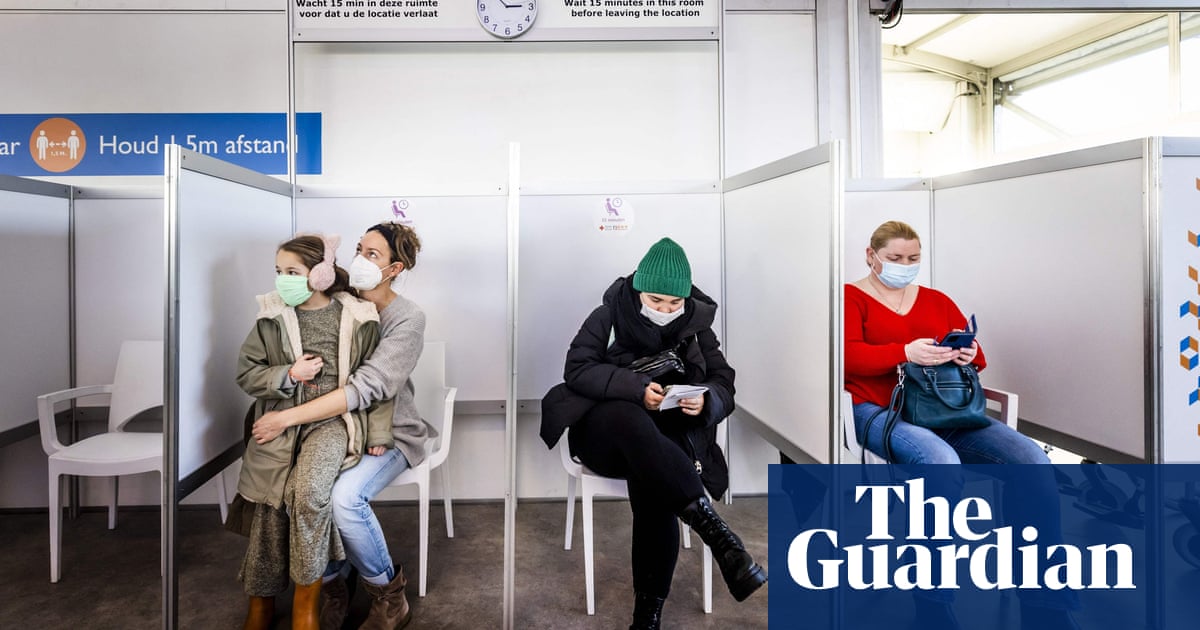
The World Health Organization has warned against repeating booster doses of the original Covid vaccines, and called for new jabs that better protect against transmission.
The WHO Technical Advisory Group on Covid-19 Vaccine Composition (TAG-Co-VAC) said in a statement on Tuesday that a vaccine strategy based on repeated booster doses is unlikely to be appropriate or sustainable.
The group of experts who are working to assess the performance of Covid-19 vaccines called for the development of new vaccines that will protect people who contract Covid against falling seriously ill but also prevent people from catching the virus in the first place.
The advisory group said that covid-19 vaccines that have high impact on prevention of infections and transmission should be developed.
It said that this would help lower community transmission and the need for stringent and broad-reaching public health and social measures.
It suggested that vaccine developers should strive to create jabs that are broad, strong, and long- lasting in order to reduce the need for successive booster doses.
The group said that the composition of current Covid-19 vaccines may need to be updated.
331 candidate vaccines are being worked on around the world according to the WHO. The UN health agency has approved versions of eight different vaccines.
The Omicron Covid variant is better at dodging vaccine protections than previous versions, according to a growing body of evidence.
Albert Bourla, the CEO of Pfizer Inc, said this week that his company could have a vaccine ready to launch by March.
Pfizer and BioNTech are working on a vaccine that will include both the previous vaccine and the one targeted at the fast-spreading variant, according to Bourla.
Bourla thinks it is the most likely scenario. We are working on higher doses. We are working different schedules. We are doing a lot of things.
Bourla said in an interview with CNBC that the vaccine could be ready by June.
Hans Kluge, the WHO's Europe director, warned that a "tidal wave" of Omicron infections could cause more than half of Europe's population to be affected in the next two months.
In a statement on Tuesday, Kluge said the region had recorded more than 7 million new cases in the first week of the year of 2022, double the rate of a fortnight previously.
He said that more than 50% of the population in the region will be affected by Omicron in the next six to eight weeks.
Maria Van Kerkhove, WHO Covid-19 technical lead, provided an update during a live Q&A session on Tuesday.
[.
50% of Europeans could be affected by Omicron in the next two months.
] (www.theguardian.com/world/2022/jan-11/omicron-europe-tidal-wave-who)
There were more than 15 million cases in the last seven days. That is a new high in this epidemic. Van Kerkhove said that the figures in the Epi curve were likely to be an underestimate, and that more than 43,000 deaths were also reported.
The number of cases being reported around the world has gone up, so we are seeing a sharp increase. About half of those have been reported from Europe, and 40% of all cases reported from the Americas have a high burden of cases from the US.
The WHO has resisted the push to roll out blanket booster programmes in the battle against new concerning variant like Omicron, saying it makes no sense as many people in poorer nations are still waiting for a first jab, dramatically increasing the chance of new, more dangerous variant emerging.
More than eight billion doses of Covid-19 vaccines have been administered in at least 219 territories, according to a count by Agence France-Presse.
More than 70% of people in high income countries have received at least one jab, while less than 1% of people in low income countries have.
With Agence France-Presse.